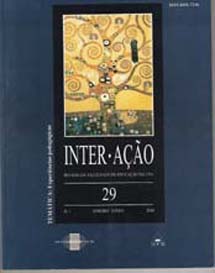A TRAJETÓRIA DA ESCOLA FAMÍLIA AGRÍCOLA DE PORTO NACIONAL
DOI:
https://doi.org/10.5216/ia.v29i1.1330Abstract
A Escola Família Agrícola de Porto Nacional existe no município desde 1994 e sua clientela é constituída basicamente por filhos de pequenos agricultores e assentados, agentes que há tempo estão envolvidos na luta pela terra. A implantação da EFA na região aconteceu de forma diferente daquela que normalmente acontece em todo o país, ou seja, a escola surgiu desvinculada da Igreja e impulsionada por uma organização não-governamental tendo, ainda, como característica diferencial a utilização do método Paulo Freire (pedagogia da libertação) associado à pedagogia da alternância. Os proponentes da EFA buscam oferecer na região uma educação rural diferente, voltada para a realidade do campo, comprometida com o trabalho e as lutas cotidianas dos camponeses, uma educação libertadora, por isso, a opção por uma escola desvinculada da Igreja, instituição reconhecidamente comprometida com o Estado, com a burguesia e seus interesses.Downloads
Downloads
Published
How to Cite
Issue
Section
License
Inter-Ação uses the Creative Commons Attribution 4.0 License for Open Access Journals (Open Archives Initiative - OAI) as the basis for the transfer of rights. Open access means making documents available on the Internet free of charge, so that users can read, download, copy, distribute, print, search, or link to the full text of documents, process them for indexing, use them as input data for software programs, or use them for any other lawful purpose, without financial, legal, or technical barriers.
Authors publishing in this journal agree to the following conditions:
1) Authors retain copyright and grant the journal the right of first publication, with the work simultaneously licensed under the Creative Commons Attribution License, which permits redistribution of the work with attribution and first publication in this journal.
2) Authors are permitted to enter into additional, separate agreements for non-exclusive distribution of the version of the work published in this journal (e.g., for publication in an institutional repository or as a book chapter), with attribution and first publication in this journal.
3) Authors are permitted and encouraged to publish and distribute their work online (e.g. in institutional repositories or on their home page) at any time before or during the editorial process, as this may generate productive changes as well as increase the impact and citation of the published work.















